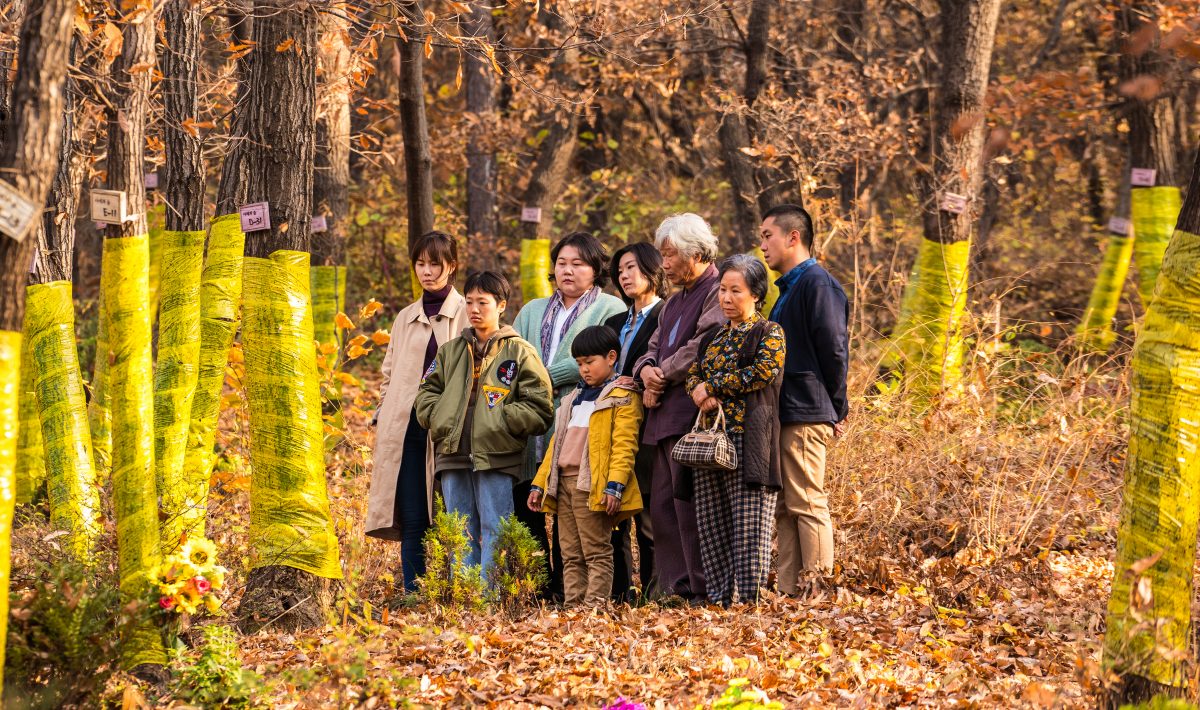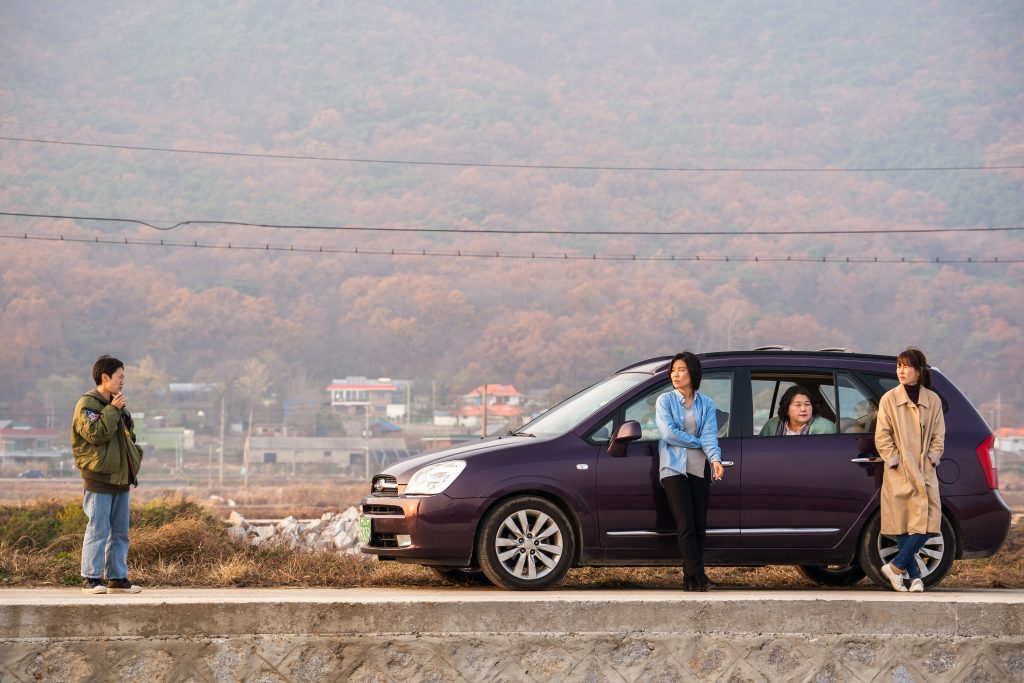Move the Grave, the full-length debut of a young Korean director, Seung-o Jeong, is a successful cross-section of Korean society from the perspective of one three-generation family. Although not as brilliant as Hirokazu Koreeda’s family portraits, the work shown in Competition 1-2 section at the Warsaw Film Festival looks credibly and really solidly, especially for the artist’s first longer production.
The young director may be introducing characters a little too quickly, making it difficult for viewers to orientate themselves in a complicated world of a family. And – oh, dear – one can get lost. The eldest of the siblings, Hye-yeong Baek, who has huge problems with raising a hyperactive son alone – the father abandoned the family, and the woman also has problems at work – gets the news of the need of moving her father’s grave due to the planned construction replacing the old cemetery. Almost the whole family gets into the car – perhaps more because of the promised compensation than the sense of duty – and begins the journey, during which secrets will come to light and opinions, views and mutual animosities will collide.
There are four sisters in total – the second one is planning to get married for love, but is afraid that they will not be able to handle the finances. The third in turn married for money and although she claims she is happy, she hides something. The last one is a student with a feminist attitude – which is not easy in a strongly patriarchal society like South Korea.
And what about men? There is also an older brother, a strict uncle and son of Hye-yeong Baek. Although the emphasis on tradition is so strong that even among women themselves there will be misogynist attitudes (e.g. the thread about the abortion of an unwanted child and comments of two sisters, talking about the sanctity of life, etc. – we know it all well from elsewhere) and female voice is silenced, then it is not men who make decisions and then put them into practice. The brother of four sisters is completely unfit for life, he is not able to cope with his problems and prefers to withdraw and run away. The uncle is so attached to tradition that he does not see errors in his reasoning and stubbornly clings to his opinion. And the youngest member of the family, the boy, who draws masculinity patterns from the examples available around him, is aggressive towards women.
Seung-o Jeong is on the women’s side, but he puts a lot of effort into maintaining his observer status – and by that, in some sense, he is giving women the driving force. Traditions cannot be easily overcome, but – as the young Korean shows – in the clash of increasingly consolidating women (who, despite disagreements, slowly and unknowingly start the fight for their voice) and the male characters, a slow change begins. A special event that will gently set their thinking on a different track will be needed. The director argues that although men do not give up their privileged status easily, a subtle change can also take place in them.
Move the Grave is a movie that looks optimistically at the changes taking place in Korean society. The director efficiently and sensibly shows the relationships between closest relatives and the fact that the moral revolution begins with the family – the most ossified social cell.







